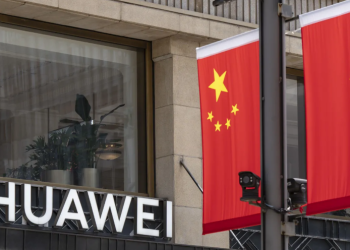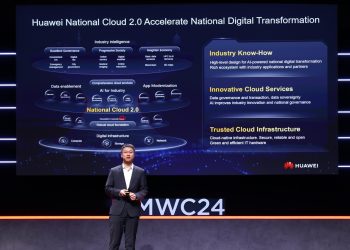The pace of digital and intelligent transformation of enterprises is accelerating with production systems undergoing reconstruction and upgrade.
The world is currently witnessing an explosive growth in computing power, data, and network traffic. These aforementioned factors have contributed to the rise in threats and conflicts in the digital space.
As technology advances and the internet becomes increasingly pervasive in our daily lives, the need for cybersecurity and privacy protection becomes even more critical.
With the robust development of Big Data, Industrial Internet of Things (IIOT), Cloud Computing, Artificial Intelligence, and other technologies, the digital economy has become a driving force for the world’s economic growth. We are now striding towards a digital intelligent world where Al large models emerge and see rapid growth.
In the digital economy, data is a core factor of production, and as such is becoming a breakthrough point in technology and business innovation. However, cybercrime has become a major challenge hindering the development of the digital economy.
According to related reports, the global annual cost of cybercrime was predicted to reach $ 8 Trillion in 2023 and increase by 15% per year. If it were measured as a country, then cybercrime would be the world’s third-largest economy. As statistics have proven, the loss caused by cybercrime is much larger than the damage inflicted by natural disasters in a year.
In daily life, ransomware attacks and telecom fraud crop up here and there, bringing heavy economic losses to both enterprises and individuals. Such incidents are usually attributed to cyber security vulnerabilities, privacy breaches, or important data leakage.
In a recent popular movie about telecom fraud dubbed “No More Bets”, fraudsters customize fraud schemes for victims based on their disclosed personal privacy information, and monitored them in real time by identifying some cyber security vulnerabilities, eventually turning the victims’ lives upside down.
In the physical world, security means protecting people and property and maintaining public order while in the digital world, security means protecting personal privacy and data, as well as safeguarding cyberspace governance by establishing and maintaining a new digital order. It is therefore necessary for us to ensure cyber security, privacy protection, and data security in the digital transformation process. This will ensure the safety of ourselves, our families and our friends, while protecting businesses from potential threats.
Huawei’s effort in mitigating security vulnerabilities and protecting data and privacy will help reduce the risk of cyberattacks and cybercrime our various customers face.
In essence, safeguarding our cyber security and privacy is pivotal in securing our existence.
Huawei mission is to consistently detect and remedy security vulnerabilities, safeguard against cyber threats, and establish a security system that supports rapid, agile and persistent response. At the same time, our focus is to strengthen communication and cooperation with external stakeholders, identify and deeply understand security pain points and concerns of customers or regulators, and dispel their security doubts by conveying our achievements in software engineering capability enhancement and transformation.
At Huawei, cyber security and privacy protection are at the forefront of our operations. By working together, we fully integrate the advancements made in software engineering capability enhancement, elevating our professional skills in cybersecurity and privacy protection, thereby building a new layer of security for the digital intelligent world.















